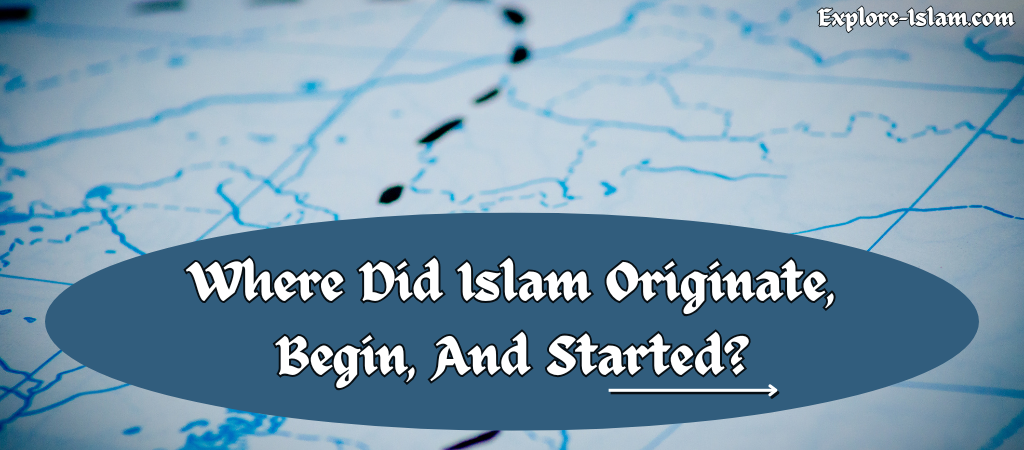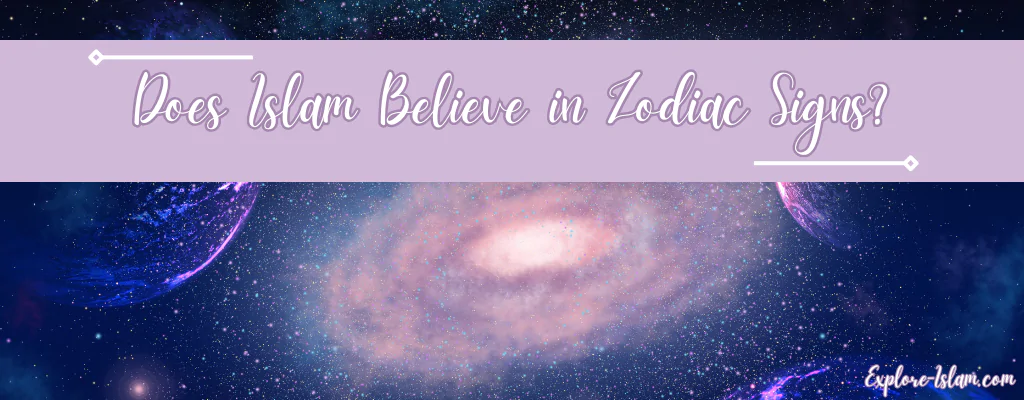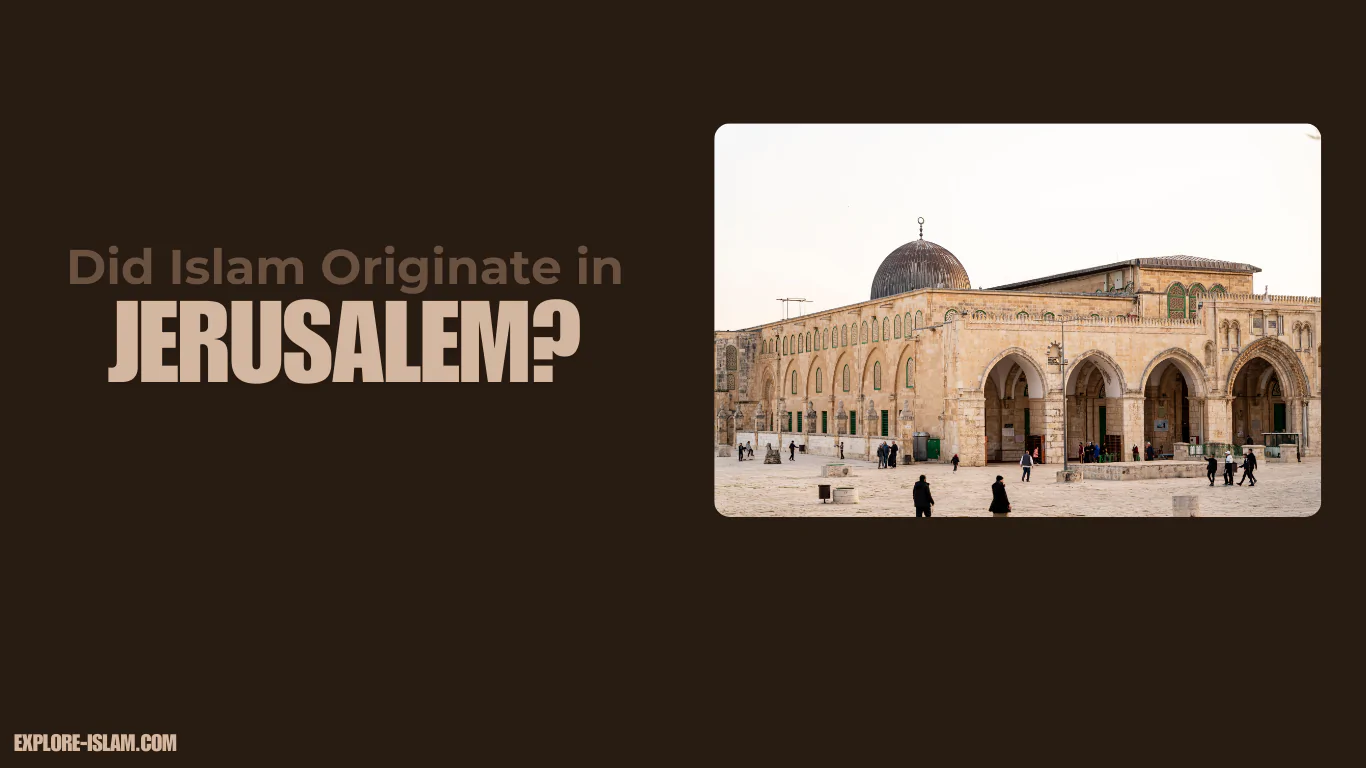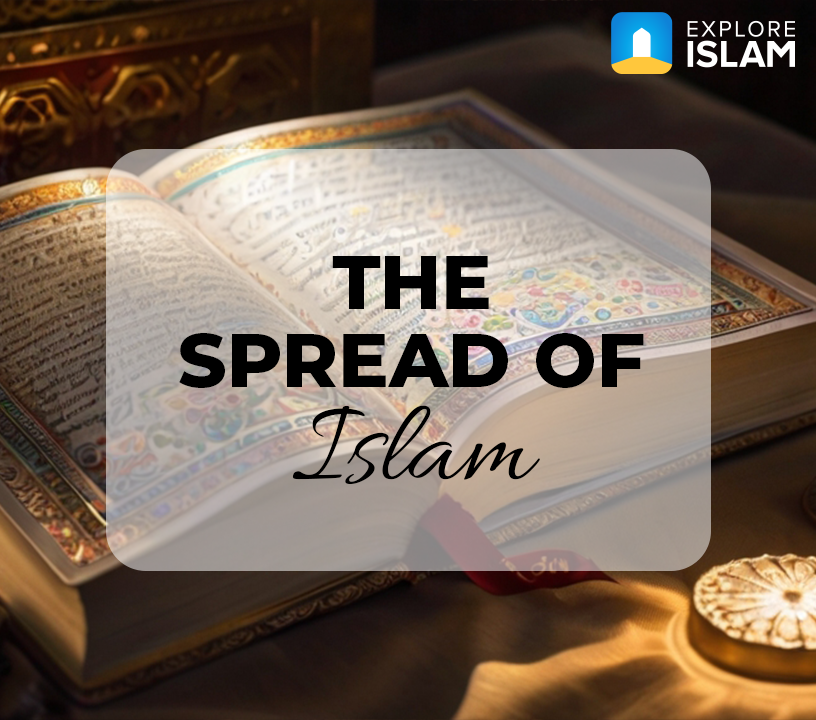Where Did Islam Originate? Uncover the origins of Islam, from its emergence in 7th-century Arabia to the revelations received by Prophet Muhammad. This guide answers the top 10 questions about when, where, and how Islam began – while clearing up common misconceptions. Keep reading to discover surprising facts and deep insights about the roots of Islam!
Where Did Islam Originate, start and begin?
Islam originated in Mecca, located in the Arabian Peninsula. The religion began in 610 C.E. when Almighty God revealed the first verses of the Quran to Prophet Muhammad (PBUH) in the Cave of Hira near Mecca.
Why Is Mecca the Place of Origin of Islam?
Mecca’s location was considered ideal for the spread of Islam because it was a center of trade and pilgrimage, facilitating the spread of ideas and goods, including religious beliefs.
- After the conquest of Mecca, Islam helped unite the scattered Arab tribes, replacing tribal divisions with collective unity, which facilitated rapid expansion.
- The divine message of Islam, revealed in the clear Arabic language, is stated to be the final divine message, preserved in its original form.
Read more: Why Was The Location Of Mecca Ideal For The Spread Of Islam?
Did Islam Originate in Jerusalem?
Islam did not originate in Jerusalem, despite claims from some writers, such as Tom Holland, Patricia Crone, Michael Cook, and Dan Gibson, suggesting that Islam may have started outside of Mecca. These theories, which propose origins in Jerusalem or north of Mecca, are widely dismissed in academic circles as they challenge Islam’s established historical foundations:
A. Quranic and Biblical References:
- Mecca is mentioned in the Quran as “Makkah” (48:24) and “Bakkah” (3:96), and is referred to as “The secure city” (95:3) and “Mother of Cities” (42:7, 6:92).
- The “Valley of Baca” mentioned in the Bible is also described in a manner that fits Mecca.
B. Mosque Orientation and Direction:
- Since the time of Prophet Muhammad (PBUH), early mosques have faced the Kaaba in Mecca, evidenced by their orientation.
- Theories claiming mosques initially faced Petra are refuted by evidence indicating that Mecca, Jerusalem, and Petra align in direction with slight variation, permissible due to the early use of astronomical methods for determining direction.
C. Historical Sites and Remnants:
- Locations connected to Prophet Muhammad’s life, such as mosques, cemeteries, and expedition sites, are preserved in the Hijazi region, including Mecca and Medina.
For more about this topic, read this article: Did Islam Originate in Jerusalem?
What Is the Significance of Medina in the Origin of Islam?
While Islam originated in Mecca, Medina became a pivotal city in the establishment and spread of Islam after the Hijra (Migration) in 622 CE. Its significance is highlighted through several key roles:
- Hijra (Migration): The migration to Medina marks the start of the Islamic calendar and provided a secure base for the Muslim community after facing persecution in Mecca.
- First Islamic State: Medina became the site where Prophet Muhammad (PBUH) established the first Islamic state, uniting various tribes under a common Islamic governance system.
- Acceptance and Spread of Islam: The people of Medina (Al-Ansar) accepted Islam and invited the Prophet to their city, leading to the rapid spread of the faith and the establishment of a thriving Muslim community.
- Center of Islamic Leadership: Medina served as the political and spiritual center of Islam, especially during the caliphate of Abu Bakr (RA) and subsequent leaders.
- Historical and Religious Sites: Medina is home to significant Islamic landmarks, including Al-Masjid an-Nabawi (the Prophet’s Mosque), Al-Baqee’ Cemetery, and the sites of major battles such as Uhud Mountain.
Thus, while Mecca is the birthplace of Islam, Medina played a critical role in solidifying and spreading the Islamic message.
Read more:
Who Started the Religion of Islam?
Prophet Muhammad (PBUH) is the final Messenger from Almighty God that received the final revelation, the Quran, marking the official start of Islam and bringing Islam to its complete form.
At the age of 40, Prophet Muhammad received from the Angel Jibreel the first verses of the Quran, making him the seal of the prophets.
Though Islam in its general sense of submission to One Almighty God started from the early existence of Prophethood on earth by Prophet Adam.
Why Did Muhammad Start Islam?
Prophet Muhammad (PBUH) did not initiate Islam on his own; rather, he was divinely appointed as the final messenger of Allah to convey the last revelation. His mission was to deliver the message of Islam, guiding humanity to the path of monotheism, morality, and righteousness.
- The Quran was revealed gradually over a period of 23 years, instructing him to first call his closest family members, then the surrounding community, and ultimately, all of humanity.
- Prophet Muhammad (PBUH) dedicated his life to spreading the teachings of Islam, emphasizing the oneness of God, compassion, and ethical conduct.
Almighty God stresses the divine choice for the time of revelation of Prophet Muhammad (PBUH) in the Quran asking him to say to his people:
Say, “Had Allah willed, I would not have recited it to you, nor would He have made it known to you. I had lived my whole life among you [i.e., 40 years] before this ˹revelation˺.”
Read more: Who Is the Founder of Islam?
Misconceptions and Refuted Claims about Islam Founder
Confusion about the founder of Islam arises from various misconceptions, including claims about Ishmael and the Catholic Church. This section clarifies these assertions and reinforces Prophet Muhammad (PBUH) as the true Messenger of Islam purley receiving the final divine message from Almighty God.
1. Did Prophet Ishmael start Islam?
While Prophet Ishmael is acknowledged as a prophet and messenger of monotheism and Islam in its general sense of submission to One Almighty God, he is not the founder of Islam in its final divine version.
- Prophet Ishmael’s role included participation in the building of the Kaaba and contributing to Islamic rituals.
- Some people mistakenly claim Ishmael as the founder due to his significant role and his ancestral connection to Prophet Muhammad (PBUH).
- Additionally, some Jewish sources cite Ishmael as the founder, viewing his descendants as the “others” (Muslims and Arabs). However, the Quran was revealed to Prophet Muhammad (PBUH), establishing him as the founder.
Read more about this misconception: Did Ishmael Start Islam?
2. Did Catholic Church start Islam?
The theory that the Catholic Church created or shaped Islam is baseless, lacking credible historical evidence:
- This theory often stems from medieval propaganda, particularly during the Crusades, and conspiracy theories among some Christian sects.
- Islam originated independently in the 7th century CE through the last divine revelation to Prophet Muhammad (PBUH) in the Arabian Peninsula, with foundational teachings rooted in the Quran, borrowing nothing from earlier books altered through time.
- Shared elements between Islam and Christianity, such as belief in prophets and charity, are attributed to a shared divine origin of the core messages in their original form, not to one religion deriving from the other.
- Arguments against the Catholic Church’s theory include:
- Historical conflicts between the Catholic Church and Islamic states.
- Prophet Muhammad’s illiteracy, prevented him from reading or referencing Christian texts.
- The absence of Arabic translations of Christian texts during the time of revelation.
- Historical conflicts between the Catholic Church and Islamic states.
For more about this topic, refer to these articles:
When Did Islam Originate, Start, and Begin?
Islam originated in 610 CE when Almighty God sent down the Angel Jibreel with the first revelation of the Quran to Prophet Muhammad (PBUH) in the Cave of Hira near Mecca.
- Prophet Muhammad (PBUH) was 40 years old at the time, dedicating himself to contemplation and supplication to Allah.
- The first revealed verses were from Surah Al-‘Alaq (96:1-5), marking the official start of Islam as a divinely revealed religion.
Read more:
Islam Origin Story And Map: How Did Islam Begin?
The origin of Islam mainly begins in Mecca followed by Medina, based on the following story of both:
1. Mecca: The Birthplace of Islam
- Prophet Muhammad (PBUH) spent 13 years in Mecca, calling people to Islam while facing opposition and persecution.
- Mecca was a center of trade and pilgrimage, enabling the spread of ideas and religious teachings.
- The Kaaba, located in Mecca, is considered the first house of worship dedicated to God, central to Islamic faith.

2. Medina: Establishment and Expansion
- In 622 CE, the Hijra (Migration) to Medina marked the beginning of the Islamic calendar and the establishment of the first Islamic state.
- In Medina, Prophet Muhammad (PBUH) formed a cohesive Muslim community and laid down the foundations of Islamic governance.
- After the Prophet’s passing, Abu Bakr (RA) unified the Arab tribes and initiated campaigns against the Byzantine and Sasanian empires, setting the stage for Islam’s wider territorial expansion.
Read also:
- The Spread of Islam With Timeline and Map!
- What Effect Did Abu Bakr Have On The Spread Of Islam?
- Similarities And Differences In The Spread Of Islam And Christianity
What Time Does Islam Fight Start?
During the 13 years in Mecca, Prophet Muhammad (PBUH) only engaged in peaceful preaching without any divine command to fight, despite facing harm and opposition.
- Beginning of Military Actions:
- Military actions began after the Hijra (622 CE) to Medina, marking the establishment of the first Islamic state to defend the attacks, consolidate the new state and enable the spreading of the message when facing opposition.
- Military actions began after the Hijra (622 CE) to Medina, marking the establishment of the first Islamic state to defend the attacks, consolidate the new state and enable the spreading of the message when facing opposition.
- Wars of Apostasy (Ridda Wars):
- After Prophet Muhammad’s death in 632 CE, the first Caliph, Abu Bakr (RA), led campaigns to suppress apostasy and unify the Arabian Peninsula from 632-633 CE.
- After Prophet Muhammad’s death in 632 CE, the first Caliph, Abu Bakr (RA), led campaigns to suppress apostasy and unify the Arabian Peninsula from 632-633 CE.
- Expansion Beyond Arabia:
- Abu Bakr also initiated the first military campaigns against the Byzantine and Sassanian empires, marking the beginning of external expansion.
- Abu Bakr also initiated the first military campaigns against the Byzantine and Sassanian empires, marking the beginning of external expansion.
Thus, while the early Meccan period was entirely non-violent, military actions commenced post-Hijra, as a means of self-defense, state consolidation, and spreading the divine message when opposed by kingdoms and governments.
Read more:
What Language Was the Original Quran Written In?
The original Quran was revealed and written in Arabic, a fact confirmed by the Quran itself and by Islamic scholars. Here’s an overview of key points surrounding the language of the Quran:
- Revelation in Arabic: Almighty God revealed the Quran to Prophet Muhammad (PBUH) in clear Arabic, as emphasized in Quran verse 26:195: “In a clear Arabic tongue.” This establishes Arabic as the divinely chosen language for the Quran.
- Divine Preservation: The Quran is considered to be divinely preserved in its original Arabic, with its eloquent structure reflecting the richness of the Arabic language.
- Refuting Claims of Aramaic Origins: Some have proposed that the Quran was originally written in Aramaic and later translated into Arabic. However, these claims are widely rejected. Proponents of this theory argue that the Quran contains words tied to the historical context of Jerusalem and Petra, which they believe point to Aramaic influence. Yet, such claims are viewed as misconceptions, often associated with theories about the origin of Islam in these regions.
- Arabic as the Richest Semitic Language: Arabic is considered the oldest and most eloquent Semitic language, and the Quran’s linguistic foundation is firmly rooted in it.
- Aramaic’s Decline: By the late sixth century CE, Aramaic was no longer widely spoken and had been largely replaced by Greek in many regions. This timeline challenges the idea that the Quran could have been originally in Aramaic.
- Rejection of the Aramaic Theory: The theory suggesting that the Quran is derived from Aramaic is rejected by scholars, including non-Muslim experts. This academic consensus supports the Arabic origins of the Quran.
- Linguistic Borrowing in Arabic: While Arabic does include loanwords from other languages due to historical interactions, this does not diminish its divinely revealed nature. The Quran’s vocabulary reflects the natural process of lexical borrowing, where words from different languages become integrated into Arabic over time. These borrowed words do not alter the Quran’s primary linguistic identity as Arabic.
- Prophet Muhammad’s (PBUH) Illiteracy: Prophet Muhammad (PBUH) was illiterate, and there were no Arabic translations of Christian scriptures during his lifetime. The Bible was only translated into Arabic nearly two centuries after the Prophet’s death, making it unlikely that Muhammad (PBUH) could have drawn from those texts, further affirming that the Quran was revealed directly in Arabic.
In conclusion, the Quran was revealed in Arabic and remains unchanged in its original language, with no credible evidence supporting theories of its origin in Aramaic. The Arabic language holds a special significance in the Islamic tradition, as the Quran’s divine message was delivered through it to Prophet Muhammad (PBUH).
Conclusion
To conclude, Islam’s origins are deeply rooted in 7th-century Arabia, marked by divine revelations to Prophet Muhammad. Understanding where, when, and how Islam began helps clear misconceptions and provides valuable insights into its profound message. The article answers the following question in detail:
- Where did Islam originate? In Mecca, Saudi Arabia.
- When did Islam begin? In 610 CE with the first revelation.
- Who founded Islam? Foundation of Islam is set through the divine revelation of Almighty God to Prophet Muhammad, the final messenger to humanity.
- Why did Islam start in Arabia? Arabia was a hub of trade and cultural exchange, ideal for spreading the divine message.
- Did Islam originate in Jerusalem? No, it originated in Mecca, but Jerusalem holds religious significance in Islam.
- What was the first revelation in Islam? The command to read (Iqra) in Surah Al-‘Alaq.
- What language was the original Quran written in? Classical Arabic.
- How did Islam spread? Through peaceful preaching, migration, and later, strategic battles.
Ready to dive deeper? Explore the complete history of Islam’s beginnings and uncover the truth behind its remarkable journey! Start a conversation right now with our team for more discussion!









